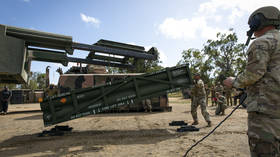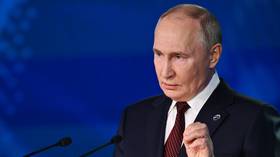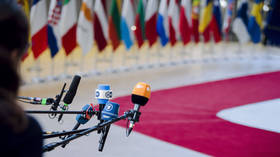Strasbourg rulings will be heard by Russian courts
The Constitutional Court has obliged Russian courts to reconsider decisions in civil cases under verdicts by the Strasbourg human rights court and ordered legislative amendments.
So far that rule has referred to criminal cases and arbitrages only.
The decision was made following an appeal by three Russian citizens – including a military pilot and Chernobyl victim – whose complaints were earlier tried by the Strasbourg court. All the three won the cases and the European court ruled that Russian courts had violated the Convention on Human Rights. However, when the appellants wanted the Russian courts to retry their cases upon discovery of new facts, their requests were rejected.
On Friday, Russia’s Constitutional Court (CC) in St. Petersburg stated that "Decisions by the European Court of Human Rights are binding for Russia."
"The state must not only pay compensation to a person whose rights were violated, as determined by the European Court, but also make sure the person’s rights are restored as far as it is possible…" the ruling published on the body’s website reads.
Russia is a member of the Council of Europe and a party to the European Convention on Human rights, which it ratified in 1998. Thus, it is obliged to follow the rulings of the Strasbourg Court – the international judicial body that monitors respect of human rights by the member states. Set up in 1959, it rules on individual or state applications alleging violations of the civil and political rights set out in the Convention. Since 1998, it has sat as a full-time court and individuals can apply to it directly.
Article 15 of the Russian Constitution states that “If an international treaty or agreement of the Russian Federation fixes rules other than those envisaged by law, the rules of the international agreement shall be applied.”
Meanwhile, the Russian Civil Procedure Code (Article 392) does not have a clause saying that Strasbourg Court verdicts can provide grounds for a re-trial following the establishment of new circumstances. Neither does it have a clause stating otherwise. Based on that nuance, Russian courts have refused to consider requests by citizens.
The Constitutional Court ordered that amendments to the code should be made in order to sort the complication and provide for implementations of European court rulings.
”This decision aims at providing a more efficient protection of interests of Russian citizens. From now on, Russians get more guarantees that their rights and interests will be secured when their appeals to the European Court of Human Rights are satisfied,” said Professor Leonid Sukiyanen, Doctor of Law at the Higher School of Economics.
As for the timing of the decision, he said that since the Russian Constitutional Court does not consider issues under its own initiative, but only when an appeal is made, the decision had not been made earlier – before the three citizens filed their complaint. “As simple as that,” professor told RT.
“The Strasbourg court is a higher instance than national courts, therefore its rulings must have been followed even before the CC’s decision,” said Tatiana Lokshina, the chair of the Demos Center, a human rights watch group. However, in reality it was not exactly that way. Friday’s move shows that “Russia’s CC is trying to strive for a more effective implementation of the Strasbourg court’s decisions. And that, as well as the ratification of the Protocol 14 to the Convention on Human Rights, is a very positive step,” she told RT.
Meanwhile, complaints from Russia have been piling up at the European Court. Indeed, Moscow has often been accused of human rights violations as well as of not following the Strasbourg Court rulings.
Russia is also infamous for a celebrated case of torture, Lokshina said. She referred to the case when two police officers were convicted of crimes related to the torture of a prisoner in detention. They drove Aleksey Mikheev to attempt suicide, as a result of which the man became disabled.
But does it mean the situation in Russia is really that bad?
According to Lokshina, the explanation lies also in the “vast size and a large population of the country.” The majority of complaints to the Strasburg court refer to the non-execution of Russian national courts’ decisions.
Professor Sukiyanen believes that one of the ways to tackle the problem is to reform the court system “so that Russian citizens would not appeal to the European court, but have their rights and interests secured…in courts of the Russian Federation.”
Natalia Makarova, RT












